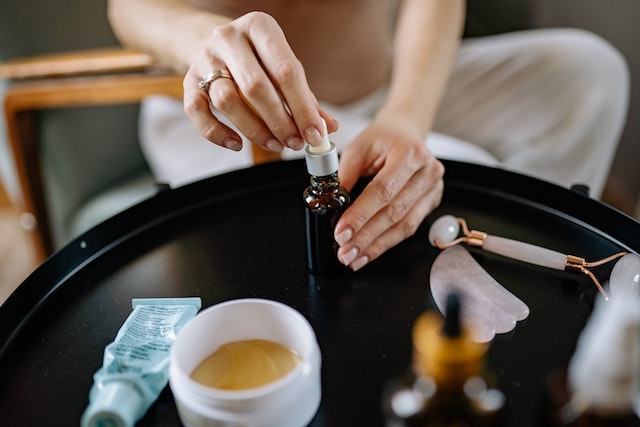
Aromatherapy – the science and art of using essential oils to heal, soothe and invigorate the body, mind, and spirit – is a form of alternative medicine that has been practiced for centuries. The ancient Egyptians, Greeks and Romans all believed in the healing power of scent and used fragrances to ward off illness, promote healing and enhance their mental and emotional states.
Today, the use of essential oils continues to grow in popularity as people seek natural, holistic ways to improve their health and well-being. Whether diffused into the air, applied topically or added to bathwater, these pure, concentrated plant extracts can have a profound effect on our bodies and minds.
From the energizing scent of peppermint that boosts focus and clarity, to the calming aroma of chamomile that eases anxiety and promotes relaxation, the possibilities for using essential oils are endless. Whether you’re seeking relief from aches and pains, looking to improve your mood or just want to fill your home with delicious fragrances, there’s an essential oil out there to suit your needs.
Essential Oils and Their Properties
When it comes to aromatherapy, the power lies in the essential oils. Extracted from plants, these oils contain the concentrated essence of various botanicals, each with their own unique properties and benefits. Understanding the distinct qualities of different essential oils can help you tailor your aromatherapy experience to target specific concerns and enhance your overall well-being.
Relaxation and Stress Relief:
- Lavender: Known for its calming and soothing effects, lavender essential oil is often used to reduce stress, promote relaxation, and improve sleep quality. Its gentle scent can help you unwind after a long and hectic day.
- Bergamot: With its citrusy and floral aroma, bergamot essential oil is believed to have mood-elevating qualities. It can help alleviate anxiety, depression, and promote a sense of tranquility.
- Chamomile: This gentle essential oil is well-known for its calming properties. It can help ease tension, relieve headaches, and enhance relaxation, making it a popular choice for aromatherapy.
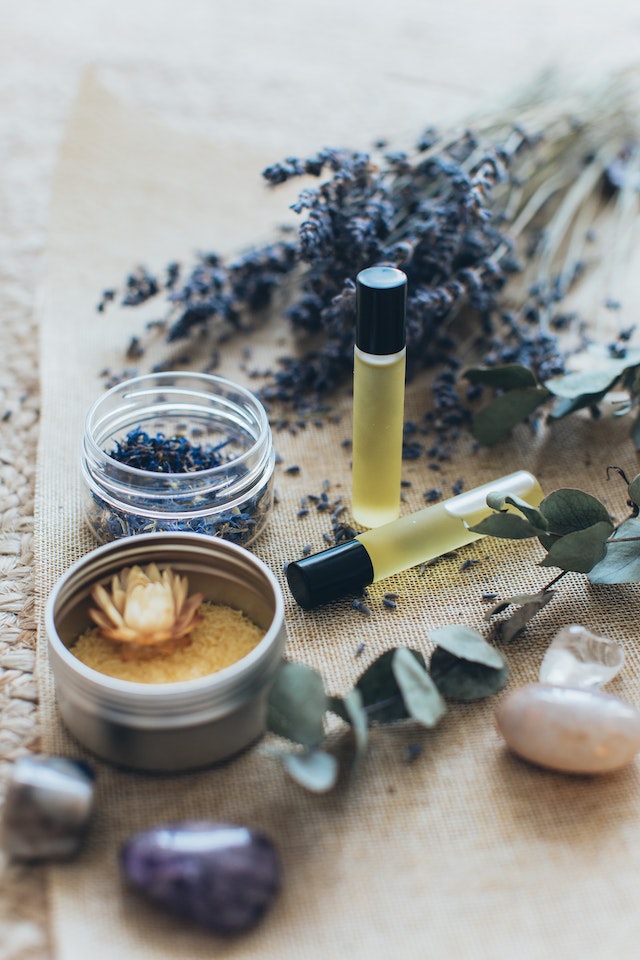
Energizing and Mental Clarity:
- Peppermint: The invigorating scent of peppermint essential oil can boost focus, improve mental clarity, and increase alertness. It is often used during study sessions, work hours, or whenever you need a pick-me-up.
- Rosemary: Known to stimulate cognitive function, rosemary essential oil can enhance memory and concentration. Its woody and herbal scent is commonly used to combat mental fatigue and improve mental clarity.
- Eucalyptus: With its refreshing and cool aroma, eucalyptus essential oil can help clear the mind, relieve mental exhaustion, and promote mental alertness. It is frequently used in aromatherapy to enhance focus and productivity.
Immune Support and Respiratory Health:
- Tea Tree: Famous for its antimicrobial properties, tea tree essential oil is often used to support a healthy immune system. It can help fight against harmful bacteria, fungi, and viruses, making it an excellent addition to your aromatherapy routine during cold and flu seasons.
- Lemon: With its uplifting and citrusy scent, lemon essential oil can help boost the immune system, promote detoxification, and support respiratory health. It is commonly used in blends for air purification and freshening the atmosphere.
- Eucalyptus: In addition to its mental clarity benefits, eucalyptus essential oil is known for its ability to clear congestion and support respiratory health. Its decongestant and expectorant properties make it a popular choice for relieving coughs and cold symptoms.
Aromatherapy Techniques and Applications
Aromatherapy offers a wide range of techniques and applications that allow you to fully experience the benefits of essential oils. From simple inhalation methods to luxurious bath rituals, the versatility of aromatherapy makes it accessible for everyone. Explore the following techniques to create your own personalized aromatic journey.
Inhalation Techniques:
Diffusion: Use an essential oil diffuser to disperse the aroma throughout a room, allowing it to be inhaled for therapeutic effects. This method is ideal for creating a calming atmosphere or promoting focus and concentration.
Steam Inhalation: Add a few drops of essential oil to a bowl of hot water, cover your head with a towel, and gently inhale the steam. This technique is great for respiratory concerns or clearing nasal passages during colds and allergies.
Topical Applications:
Massage: Combine a few drops of your chosen essential oil with a carrier oil, such as almond or jojoba, and gently massage it into the skin. This technique not only allows for absorption of the oil but also promotes relaxation and relieves muscle tension.
Bathing: Add a few drops of essential oil to a warm bath and enjoy a soothing and aromatic soak. This method is perfect for promoting relaxation, reducing stress, and rejuvenating the body and mind.
Compress: Add essential oils to a basin of warm or cold water, soak a cloth or towel in the mixture, and apply it to the desired area. This technique can help alleviate pain or inflammation, soothe skin irritations, and revitalize tired muscles.
Personal Care and Environment:
Personal Inhalers: Create your own portable aromatherapy inhaler by saturating a cotton wick with essential oils and placing it in a small container with a tight lid. This method allows you to enjoy the benefits of essential oils wherever you go, providing comfort and relief throughout the day.
Room Sprays: Blend essential oils with water or a hydrosol in a spray bottle and spritz it around your living or working space to freshen the air and create a pleasant ambiance. This technique is perfect for purifying the air and revitalizing your environment.
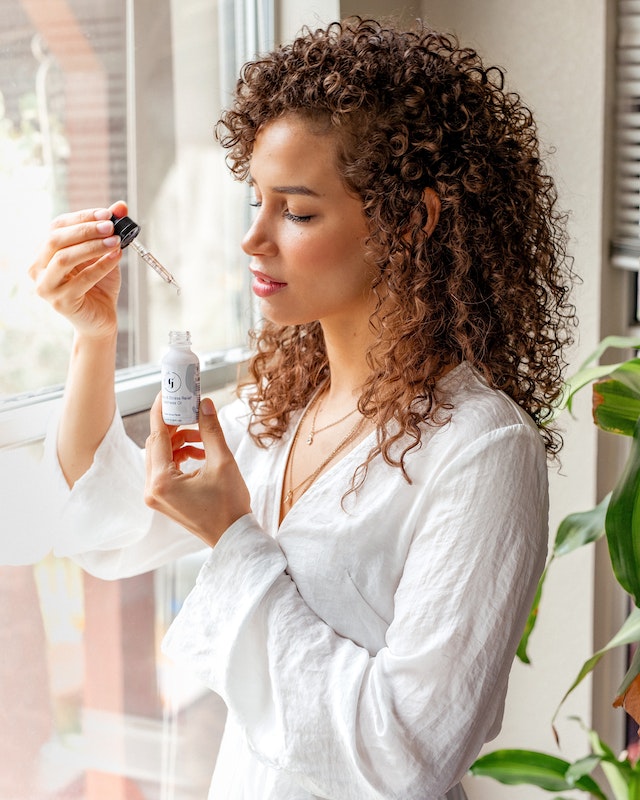
Benefits of Aromatherapy
Aromatherapy offers a variety of benefits that can positively impact both our physical and mental well-being. The therapeutic properties of essential oils have been studied and celebrated for their ability to promote relaxation, boost mood, improve sleep, and support overall health. Explore the following benefits of aromatherapy to discover how this ancient practice can enhance your daily life.
Stress Reduction and Relaxation
- The soothing scents of essential oils can help alleviate stress and anxiety, promoting relaxation and a sense of calm.
- Aromatherapy activates the limbic system in our brains, which plays a vital role in regulating emotions and promoting relaxation.
- Certain essential oils, such as lavender and chamomile, are known for their calming properties and can help ease tension and promote better sleep.
Improved Mood and Emotional Well-being
- Aromatherapy can positively impact our mood and emotional state by stimulating the release of neurotransmitters like serotonin and dopamine, which are responsible for feelings of happiness and well-being.
- Essential oils like citrus (such as sweet orange or lemon) and bergamot have uplifting properties that can enhance mood, energy, and motivation.
- Aromatherapy can be used as a complementary therapy for managing symptoms of depression and anxiety.
Enhanced Sleep Quality
- Diffusing essential oils in the bedroom can create a relaxing environment that promotes deeper, more restful sleep.
- Lavender and ylang-ylang are popular essential oils known for their sedative properties and ability to promote a sense of tranquility, leading to improved sleep quality.
- Aromatherapy can be particularly beneficial for individuals who struggle with insomnia or have difficulty falling asleep due to stress or anxiety.
Physical Well-being and Pain Relief
- Some essential oils possess analgesic and anti-inflammatory properties, making them effective for alleviating various types of pain and discomfort.
- Peppermint oil, for example, can help relieve headaches and muscle aches when applied topically or inhaled.
- Eucalyptus essential oil is commonly used to relieve respiratory congestion and promote easier breathing.
Boosted Immune System
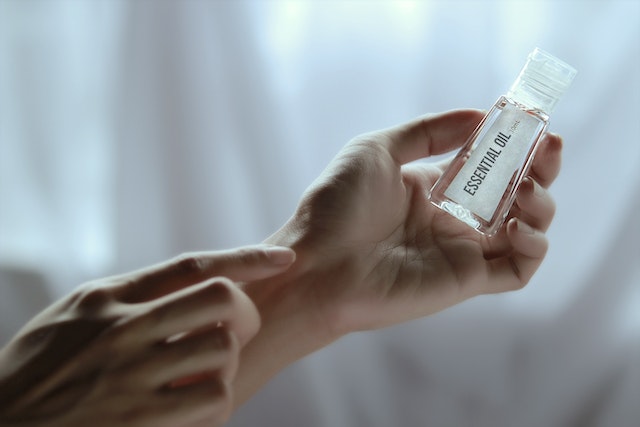
- Many essential oils contain antimicrobial properties that can aid in strengthening the immune system and fighting off common illnesses.
- Tea tree oil and eucalyptus oil have reputed antibacterial and antiviral properties that can help cleanse the air and support respiratory health.
- Regular use of aromatherapy can contribute to overall wellness by reducing the frequency of colds and flu.
Choosing and Using Essential Oils Introduction
Selecting the right essential oil for your needs and understanding how to use it correctly are essential aspects of practicing aromatherapy. With a wide variety of oils available, each with its own unique properties and benefits, it’s important to know how to navigate the options and make informed choices. Explore the following guidelines and tips to help you choose and use essential oils effectively.
Researching Essential Oils
Start by researching different essential oils and their therapeutic properties. Look for reputable sources, such as books, articles, or trusted websites, to gather information about the benefits and uses of specific oils.
Understand that individual oils have different strengths and potential risks. For example, some oils may be too potent to apply directly to the skin, while others may have contraindications for certain medical conditions or during pregnancy. Take the time to gather comprehensive information to ensure safe usage.
Quality and Purity
When purchasing essential oils, it’s crucial to choose high-quality, pure oils. Look for oils that are labeled as 100% pure, therapeutic grade, or organic.
Be wary of labels that say “fragrance oil” or “perfume oil” as these may contain synthetic ingredients and lack the therapeutic benefits of pure essential oils. The purity of the oil directly affects its potency and effectiveness.
Sourcing
Consider the sourcing and production practices of the essential oil brands you are interested in. Ethical and sustainable sourcing practices ensure that the plants are harvested responsibly, preserving their natural habitat.
Some essential oil companies work directly with farmers or distillers, ensuring fair trade practices and a higher quality product. Look for oils that are sourced from their country of origin, as this can indicate better quality.
Personal Preference and Intuition
Each person’s response to essential oils may vary, so it’s important to listen to your own intuition and trust your senses when choosing an oil. Pay attention to how an oil smells to you and how it makes you feel.
Experiment with different oils and note your reactions. You may find that certain scents resonate with you more than others or have a specific effect on your mood or well-being. Trust your body’s response and choose oils that you personally feel drawn to.
Safe Usage and Dilution
Essential oils are highly concentrated and should not be used undiluted on the skin, as they can cause irritation or sensitization. Always dilute essential oils in a carrier oil, such as almond, jojoba, or coconut oil, before applying topically.
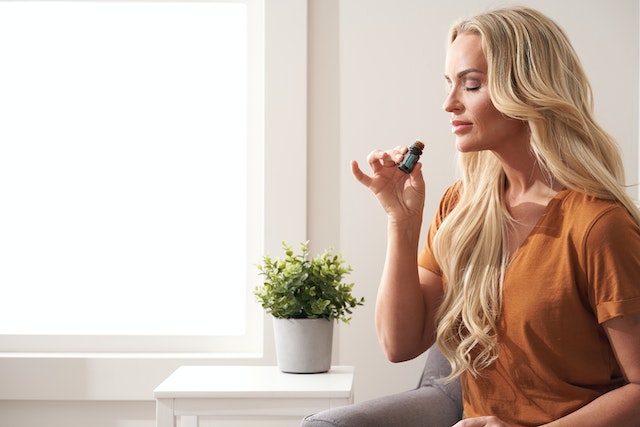
Follow recommended dilution ratios, usually ranging from 1% to 5% depending on the specific oil and the intended use. Consult reputable resources or seek guidance from a certified aromatherapist to ensure safe dilution ratios for different applications.
Patch Testing and Sensitivities
Before applying an essential oil topically, perform a patch test on a small area of skin to check for any adverse reactions or sensitivities. Apply a diluted drop of oil to the inner forearm and observe for at least 24 hours.
If you experience any redness, itching, or discomfort, discontinue use immediately. Some oils, such as citrus oils, may cause photosensitivity, so it’s important to avoid direct sunlight or use sunscreen after application.
Storage and Shelf Life
Proper storage of essential oils is vital to maintain their potency and extend their shelf life. Store oils in dark glass bottles in a cool, dry place away from direct sunlight, heat, and humidity.
Most essential oils have a shelf life of 1-3 years, although this can vary depending on the oil. Periodically check the aroma and appearance of your oils and discard any that have changed in scent or color. Older oils may have diminished therapeutic properties.
The world of aromatherapy is a vast and beautiful one. With its rich history and proven benefits, it offers us a natural and holistic approach to healing and well-being. From the soothing scents of lavender to the invigorating aroma of eucalyptus, the power of essential oils is undeniable. By incorporating the techniques and applications of aromatherapy into our daily lives, we can enhance our physical, mental, and emotional health. So let the fragrances of nature envelop you, and embark on your own aromatic journey towards a healthier and more balanced life.
